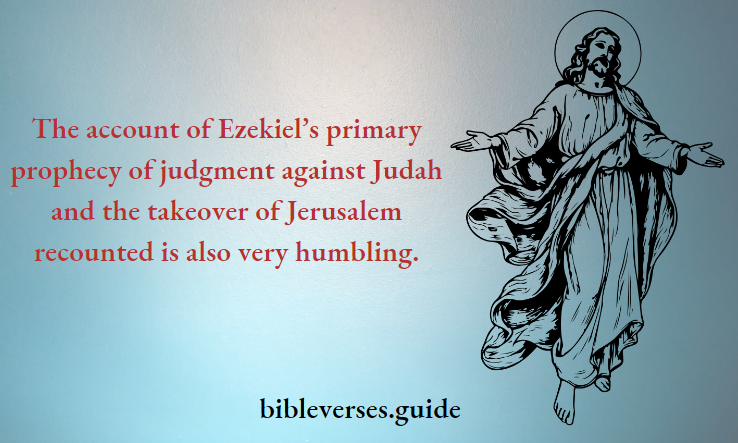Book 26 The Book Of Ezekiel
Who wrote the book of Ezekiel: Ezekiel—during the Jewish exile to Babylon?
When was it written: Between 593 and 571 B.C.
Why was it written: God’s complete sovereignty is the primary and unmistakable message of this book.
Ezekiel was a prophet during the Babylonian exile—a contemporary of Jeremiah. But what really makes Ezekiel stand out from the rest of the prophets is the way in which God used Ezekiel to get his message across.
Read and Learn More Bible Study For Beginners
A Most Unusual Method
The account of Ezekiel in chapters four and five is fascinating and humbling. It is fascinating in the fact that we see just how creative God can get when it comes to getting his message across.
It is fascinating in the fact that we see God going to extreme and unusual measures; expecting Ezekiel to obey without question.

Think about it: how many of us would be willing to do what Ezekiel did?
Other Highlights Of The Book Of Ezekiel
While Ezekiel’s reenactment of the siege of Jerusalem is definitely the highlight of this book, it is not the only thing we should take away from the third major prophet in the Old Testament (Isaiah, Jeremiah, Ezekiel, and Daniel).
Ezekiel also speaks to the people about the hope of restoration to God, the proprieties of worship, judgment on the leaders of Israel for their lack of Godly leadership, the promise of restoration, the condemnation of false prophets (then and now), and prophecies against other nations who reject God and his chosen people.
The Rebuilding Of The Temple And Distribution Of The Land
The book of Ezekiel ends with the description of the rebuilt Temple, reminders of how to worship according to the Mosaic Law, and the division of land between the tribes of Israel.
It is interesting to note that while Israel was no longer a whole nation consisting of the original twelve tribes, God divided the land among all the tribes—including the tribes of Manasseh and Ephraim (Joseph’s two sons). But why? Why did God allot land to the tribes of Israel and Judah—especially since the tribes of Israel were scattered?
God allotted land to each of the Israelite tribes for the same reason Jeremiah purchased land just prior to the siege of Jerusalem…hope for the future. The ten tribes of Israel under Assyrian rule had been scattered and were no longer a nation.
They were lost to men, but they were not and are still not lost from God. God is a man of his word. He cannot break a promise. His holiness doesn’t ‘allow’ that to happen. One day Israel will be gathered together once again.
One day (according to the book of Revelation) all the tribes of Israel will be recognized again by men. Israel will always hold that special place in God’s heart, but because of their refusal to embrace their inheritance, God opened up salvation and adoption into his family to the Gentiles (that’s us).
Ezekiel’s prophecies have not all come to pass yet. God has not yet gathered Israel together again. But he will. Someday he will.
The book ends with instructions on where to situate the gates of the rebuilt Jerusalem, their size, and what names they are to be given. Again, this is something that is yet to come.
But the most significant words of this final portion of the book are found in the last sentence—the name of the city from that time on. THE LORD IS HERE. The LORD is here. Yesterday, today, and forever he is here.
